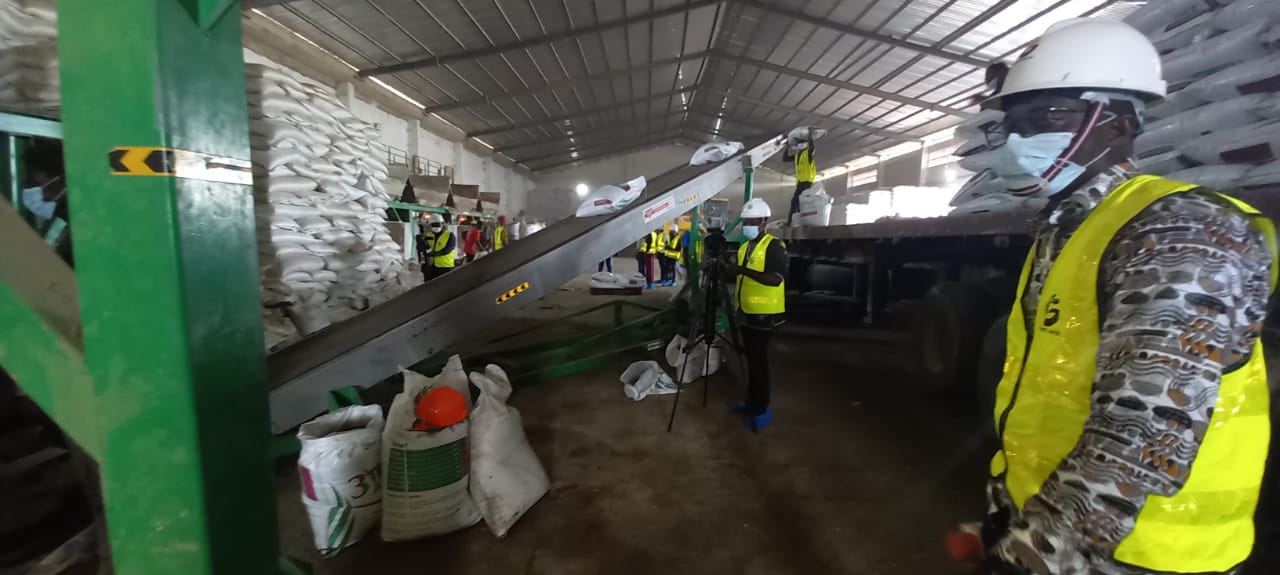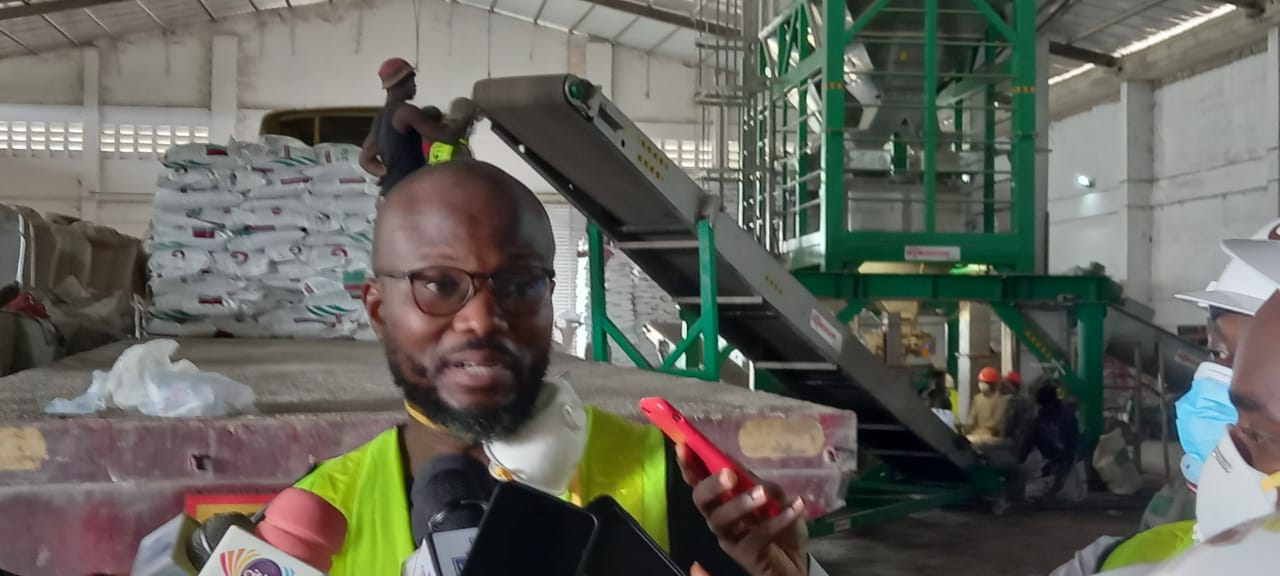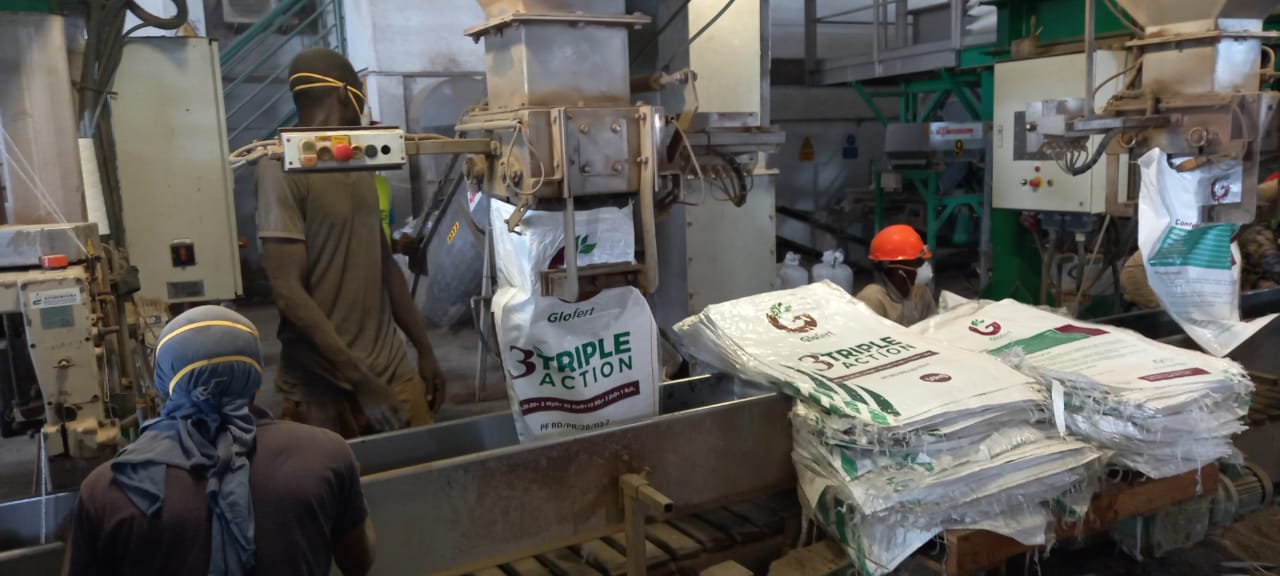Glofert, Ghana’s largest fertilizer blending factory, has resumed production to meet demands for this year’s planting season.
The resumption of the production follows months of shut down of the factory over the COVID-19 pandemic.
GloFert is currently running two shifts – night and day – producing at full capacity to enable the production of 2,400 metric tonnes of fertilizer a day, says CEO, Rev Foster Mawuli Benson.
“COVID-19 actually caused us to close down for the greater part of this year because there were genuine challenges in the world market like raw materials shortage and escalating prices of these raw materials but I can say now we are back in business.
"For the past days we have been running day and night shifts to be able to meet targets,” he told journalists during a tour of the Eastern Region facility on Friday, October 24, 2021.

GloFert’s fertilizer blending initiative is critical for the agric industry in Ghana -- especially its biggest buyer, the Planting for Food and Jobs (PFJ).
This is because the blending of specific crop nutrients at production makes the fertilizers suitable for particular crops -- instead of a one-fits-all type of fertilizer.
GloFert can produce large quantities of tailor-made fertilizers for different varieties of crops because of its robust automated production system.
“Because of our automated systems, we are able to produce all types of NPKs and add some micronutrients. The micronutrients actually improve the yield of the crops,” the CEO explained.
He is positive that the factory’s novel fertilizer blending process presents the potential for a major boost for agriculture in Ghana and other African countries because the company’s team of experts can test different soils and recommend the best blend of fertilizer nutrient to be applied for a given crop.

“At end of the day we want all our farmers to have the maximum yield as much as they can,” Mr Mawuli Benson said.
The GloFert CEO is optimistic the start of his state-of-the-art factory will solve the problem of fertilizer shortage in parts of the country, especially for the thousands of farmers operating under the PFJ.
GloFert has a deal with PFJ to deliver 1,400 tonnes of different types of fertilizers as part of a quota system with other fertilizer producers.
He has urged the government to lessen the intensity of financial challenges during producrion by paying for supplied fertilizer on time.
GloFert currently employs over 200 temporary and permanent staff.
The CEO said the current Minister of Agriculture, Dr Owusu Afriyie Akoto, played a critical part in GloFert’s ability to obtain the facility.
Glofert, One of the factories under the One District One Factory (1D1F) programme by the government, has a 45,000 metric tonnes of warehouse capacity and is located between Asuboi and Kyekyewere in the Eastern Region.
There are plans to expand the capacity of the warehouse to 120,000 metric tonnes in the coming years.





